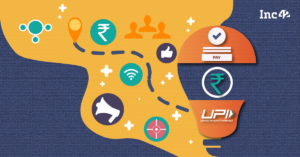The introduction of fintech into business models has made open banking a landmark solution , not just for the BFSI industry, but also for just about every other industry from SaaS to social media.
Open Banking is based around the idea that financial institutions and third party (fintech) providers should build their backend systems in a way that enables both types of entities to ‘speak the same language’, allowing for a standardized flow of data from the providers and users of financial information. In essence, open banking allows the linking of accounts and data between consumers and fintech services through a set of Application Programming Interfaces (APIs). Both stakeholders involved have greater control over transaction details, credit specifics, and other financial data, which makes banking more seamless, convenient, and inclusive than ever.
With this digital exchange of financial data, open banking is establishing the building blocks for new and emerging service models; removing system inefficiencies and opening new product possibilities.
A simplified framework for financial information and data exchange has the potential to transform financial systems, leading to product innovation and better facilitation of financial services for customers and end users. Therefore, financial data access and distribution has significant implications not only for the concerned stakeholder institutions but also for future macroeconomic growth.
India’s tryst with Open banking
A recent report by Accenture claims that about 66.66 billion transactions worth $270.7 billion can potentially shift from cash to cards and digital payments by 2023 in India, and further increase to $856.6 billion by 2030. As India prepares for this paradigm shift in purchase behavior, open banking will be pivotal in powering its growth trajectory through financial inclusion and wide-scale innovation.
At the crux of India’s open banking strategy resides IndiaStack, a set of APIs that allows governments, businesses, startups and developers to utilise a unique digital infrastructure to solve India’s hard problems towards presence-less, paperless, and cashless service delivery. One of the core layers of IndiaStack is the data layer, which represents a new paradigm for data governance in India, where the control and ownership of data is restored to individual citizens as opposed to corporations. The Account Aggregator framework is India’s unique version of Open Banking, where regulated intermediaries will play the role of ‘consent managers’ to facilitate the flow of data from entities that ‘house’ consumer data to the entities that want to use this data to provide citizens with services (all based on user consent).
Moreover, with the launch of Regulatory Sandbox and Reserve Bank Innovation Hub, the country’s approach has been that of encouragement and guidance.
With such robust innovations gaining pace, the future of India’s open banking ecosystem looks poignant and purposeful – especially as fintech solutions continue to shape a holistic, innovative, and financially inclusive payments ecosystem.
New era in the history of financial transactions
In line with its mission to foster greater collaboration and participation in the fintech ecosystem, Visa, through the Visa Fintech Initiative, is hosting a series of webinars to help fintech startups and allied businesses participate in the fintech revolution.
The webinar titled ‘The Evolution of Open Banking’ on August 20, 2021 at 5:00 PM, brings together Nigel Verdon, Co-founder & CEO, Railsbank with Arvind Ronta, Head of Products, India & South Asia, Visa to discuss the evolution of open banking in India and how startups and allied businesses can leverage it to innovate and grow.
As a pioneer of Banking-as-a-Service, and a 3x fintech founder, Verdon has an unmatched global perspective on the open banking opportunity. Railsbank enables any business or brand to become a fintech. Its unique open banking platform and super simple set of APIs enable businesses to prototype, build and scale financial use-cases with relative ease. As such, the conversation will help businesses learn how to leverage open banking to discover unique opportunities to innovate on financial services, products and experiences.










